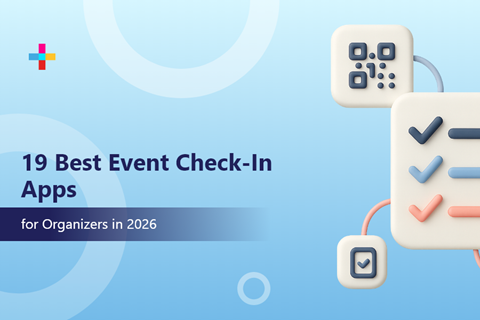

Planning an event requires not just creativity and logistical finesse but also financial acumen to ensure your budget stays on track. By learning from common pitfalls and taking proactive measures, you can prevent common event budgeting mistakes. Let's explore key lessons inspired by real-life scenarios to help you maintain financial discipline and keep your event budget in line. Leveraging event budgeting software can streamline this process and enhance your ability to stay within budgetary constraints. However, even with the best intentions, budgets can quickly spiral out of control if not managed effectively.
To address this pain-point of event planners, let's delve into
1. Budgetary Guidelines: Budgeting begins with setting realistic budgetary limits for each aspect of your event, including venue, catering, entertainment, marketing, and miscellaneous expenses. When you are defining specific allocation percentages or fixed amounts for each category based on your overall budget, here’s what you should check for:
Pitfall - Underestimating Hidden Costs: While you've meticulously planned your event budget, accounting for venue rental, catering, and entertainment, oftentimes you might forget about expenses such as permits, insurance, and cleaning fees. As a result, these unexpected costs eat into your budget, leaving you scrambling to cover them.
Lesson Learned: Always anticipate and account for hidden costs when creating your event budget, backed with thorough research. Connect with each department to learn from their previous experiences if they had to tap into the contingency fund to cover costs mentioned under any asterisks.
2. Vendor Negotiations: Before committing to vendors or services, it's prudent to compare prices, quality, and value. Most event planners explore cost-saving opportunities such as package deals, early booking discounts, or off-peak rates. Here’s what's almost forgotten:
Pitfall – Accounting for Escalations: Despite locking prices and quotes, many times as the event date approaches, some vendors inform you of price increases due to unforeseen circumstances or market fluctuations. Suddenly, your carefully calculated budget is thrown off balance.
Lesson Learned: Negotiate contracts with clauses that safeguard against unforeseen price increases, as fluctuations are beyond anyone's control and their extent unpredictable. By accommodating these escalations in the contract, one can mitigate the risk of unexpected budgetary challenges.
3. Sponsors Contracts: While you align sponsorship agreements with your budgetary framework, ensuring that sponsor contributions complement rather than strain your financial constraints is crucial. As you negotiate clear terms and deliverables with sponsors regarding benefits like branding opportunities, promotional exposure, and attendee engagement initiatives, here’s how it sometimes gets carried away:
Pitfall – Overpromising sponsors: At times while securing a high-value sponsor, negotiators tend to promise them extensive brand exposure and benefits without considering the associated costs, turning into a recipe for disaster. You may commit to add-ons such as extra signage, free branded merchandise, and exclusive VIP experiences, only to realize that fulfilling these promises exceeds your budget.
Lesson Learned: Be realistic about what you can offer sponsors within your budget. Always prepare sponsorship packages carefully to allow sponsors to choose a package and value instead of presenting them with a full menu you can’t fulfill later. Negotiate sponsorship agreements carefully, clearly outlining deliverables.
4. Contingency Fund: The contingency fund should act as a financial safety net, providing flexibility to address last-minute changes and unanticipated requirements without jeopardizing the overall budget. While you remain judicious and allocate budget to almost every component, some avoidable situations like these may cause unnecessary depletion. Here's what happens:
Pitfall - Scope Creep: Despite starting with a modest event concept and budget, ad-hoc additional features, activities, and enhancements are added at the request of stakeholders, sometimes in response to competitiveness. Each new addition drives up costs, pushing your budget beyond its limits, which wasn't originally assigned a specific cut and hence taken off the contingency budget.
Lesson Learned: Along with defining your event scope and budget parameters early on, set aside some portion, considering the nature of the event, for unforeseen expenses of stakeholders to which you cannot say no.
5. Financial Tracking Systems: Event budgeting software has come a long way and is changing event management. A major aspect of selecting event management software is having an integrated budgeting tool. But once the event planning begins, looking at the whole picture becomes difficult and focusing on minor budgetary oversights is not possible. Here’s how discrepancies can arise:
Pitfall - Not revisiting budget benchmarks: Despite your best intentions, you neglect to track expenses and compare them with set limits. Receipts pile up, invoices go unpaid, and you lose sight of where the money is being spent. As a result, you exceed your budget without even realizing it until it's too late to course-correct.
Lesson Learned: Use software that is fully integrated with your event, and which helps you implement robust end-to-end financial tracking systems from the outset of event planning. Create charts and revisit budget red flags to improvise the strategy in real-time.
6. Third Party Disputes and Unforeseen Payouts: Maintaining optimum cash flow is paramount in events. Circumstances can arise such as inclement weather, equipment malfunctions, or sudden cancellations by key participants, perhaps a vendor delivers subpar quality goods or services, and you need to make urgent payment. Here’s what may happen:
Pitfall - Lack of Mitigation Strategy: While you may have contingencies for certain foreseeable issues, unforeseen disputes or payouts with third parties can catch you off guard. Failure to anticipate and plan for such scenarios results in budget overruns and strained relationships with vendors or service providers.
Lesson Learned: Maintain clear and open communication with vendors throughout the planning process and react to any out-of-scope delays or conditions put up by vendors to address any issues promptly. Keep proper check on payment cycles and release dates. Prioritize prompt payment to vendors to uphold trust and reliability.
7. Post Event Analysis
After the event concludes, most event planners look back and compare budgets, assess actual expenses against budgeted amounts, and proactively address any deviations or overspending, but here’s the element they end up missing:
Pitfall - Failure to Reconcile and Learn: After the event concludes, you neglect to conduct a thorough post-event budget reconciliation and analysis, especially variances. Without assessing variances and analyzing areas of overspending or underspending and correlating them with reasons, recurring budgeting mistakes may persist, hindering future event planning efforts.
Lesson Learned: Conduct a comprehensive post-event budget review, involving all teams and corroborating differences with actual feedback, which can be a part of the event debrief. Document key takeaways and best practices to inform future budgeting processes and enhance financial management practices for subsequent events.
In conclusion, effective event budgeting requires meticulous planning, proactive measures, and a keen eye for potential pitfalls. Whether you have a huge or restricted budget, these steps are crucial for ensuring the success of any event.
Don't let budgeting nightmares derail your event success. Meet our experts at Eventcombo to see the magic we can do for your next event!

Professional certifications for event planners do more than provide a solid foundation in the field; they offer valuable exposure to the dynamic world of event planning and insights from prominent industry experts.

Choosing the right event management platform is vital for event professionals navigating the growing demand for in person , virtual, and hybrid events. Modern planners need solutions that offer robust features,...

Attendees don't notice good check-in. They only notice bad check-in. And planners know check-in is the first moment where their behind-the-scenes work gets exposed.